Menu
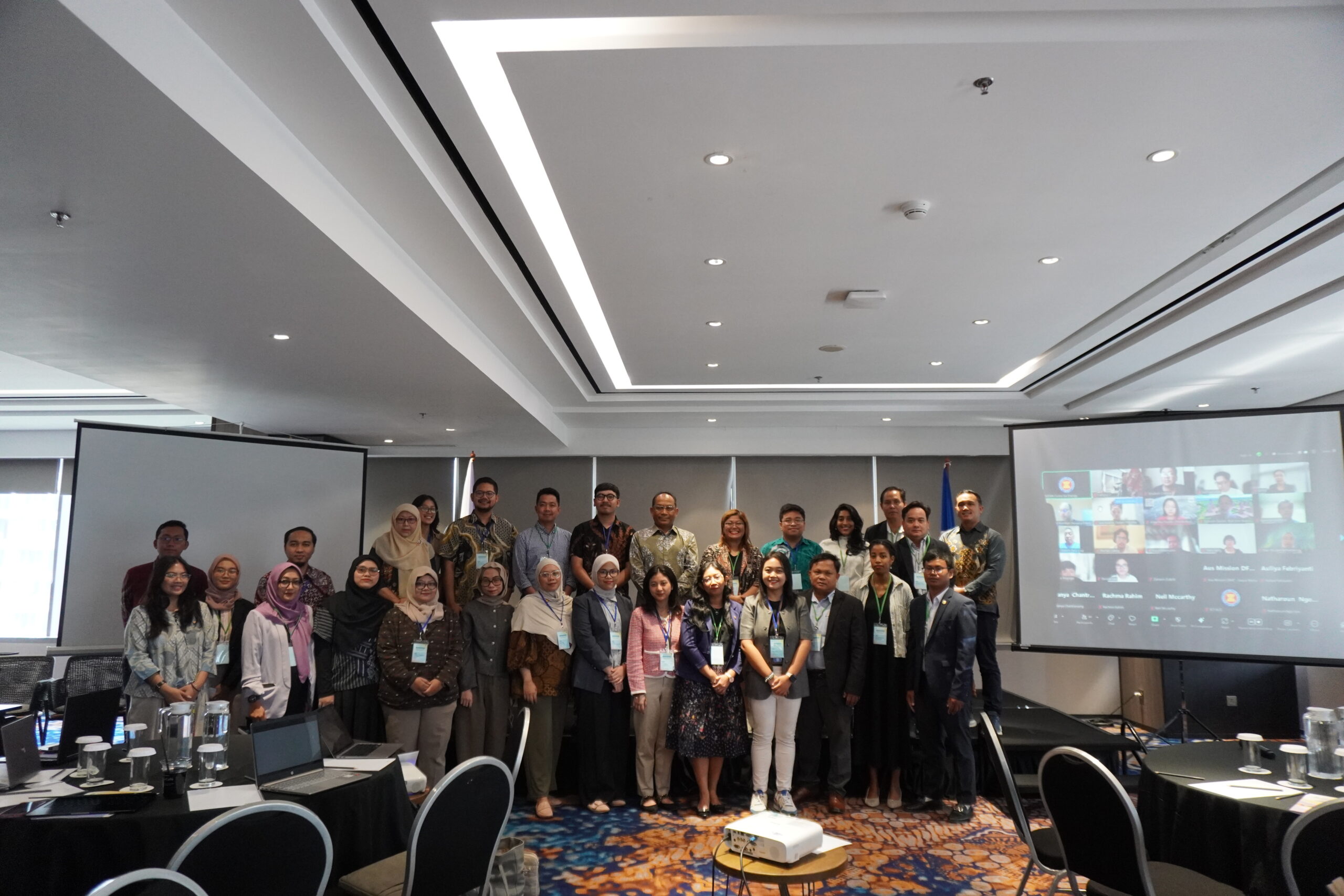
Photo 1. Group photo of the workshop on the just and inclusive energy transition framework in the ASEAN participants
On Thursday, 29th April 2025, the ASEAN Centre for Energy (ACE) organised the Multistakeholder Consultation Workshop on the Just and Inclusive Energy Transition Framework in ASEAN in Mercure Hotel Gatot Subroto, Jakarta. Held in collaboration with Oxfam, the event brought together stakeholders from government, industry, academia, and civil society organisations (CSOs), creating a quadruple helix platform for inclusive dialogue. The event also marked the public launch of ACE’s recently published report, A Guide for a Just and Inclusive Energy Transition (JIET) in ASEAN, which provides essential guidance for policymakers in developing the next phase of the regional blueprint—ASEAN Plan of Action for Energy Cooperation (APAEC) 2026-2030.
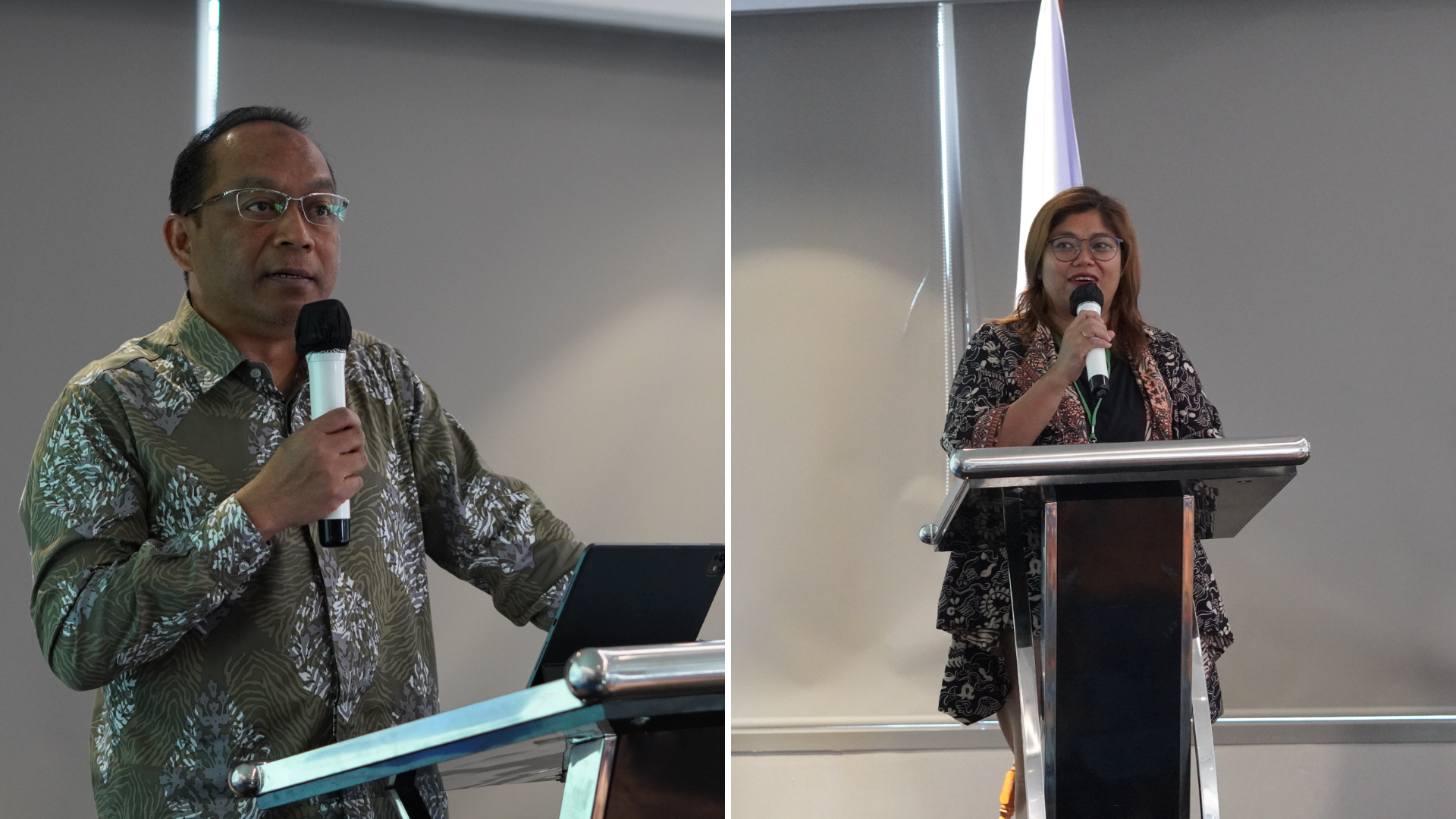
Photo 2. Dato’ Ir. Ts. Razib Dawood, Executive Director of ACE (left) and Ms. Maria Lauranti, Country Director of Oxfam in Indonesia (right) delivering welcoming remarks to open the workshop.
The workshop commenced with welcoming remarks from Dato’ Ir. Ts. Razib Dawood, Executive Director of ACE, highlighting that the next phase of APAEC marks the expansion of the energy transition mission beyond the energy system transformation and acknowledging the intersectionality of the energy sector with other aspects, such as the economy and social sectors. This was also followed by remarks from Maria Lauranti, Country Director of Oxfam in Indonesia, emphasising that all stakeholders need to work together to ensure a just and inclusive energy transition.
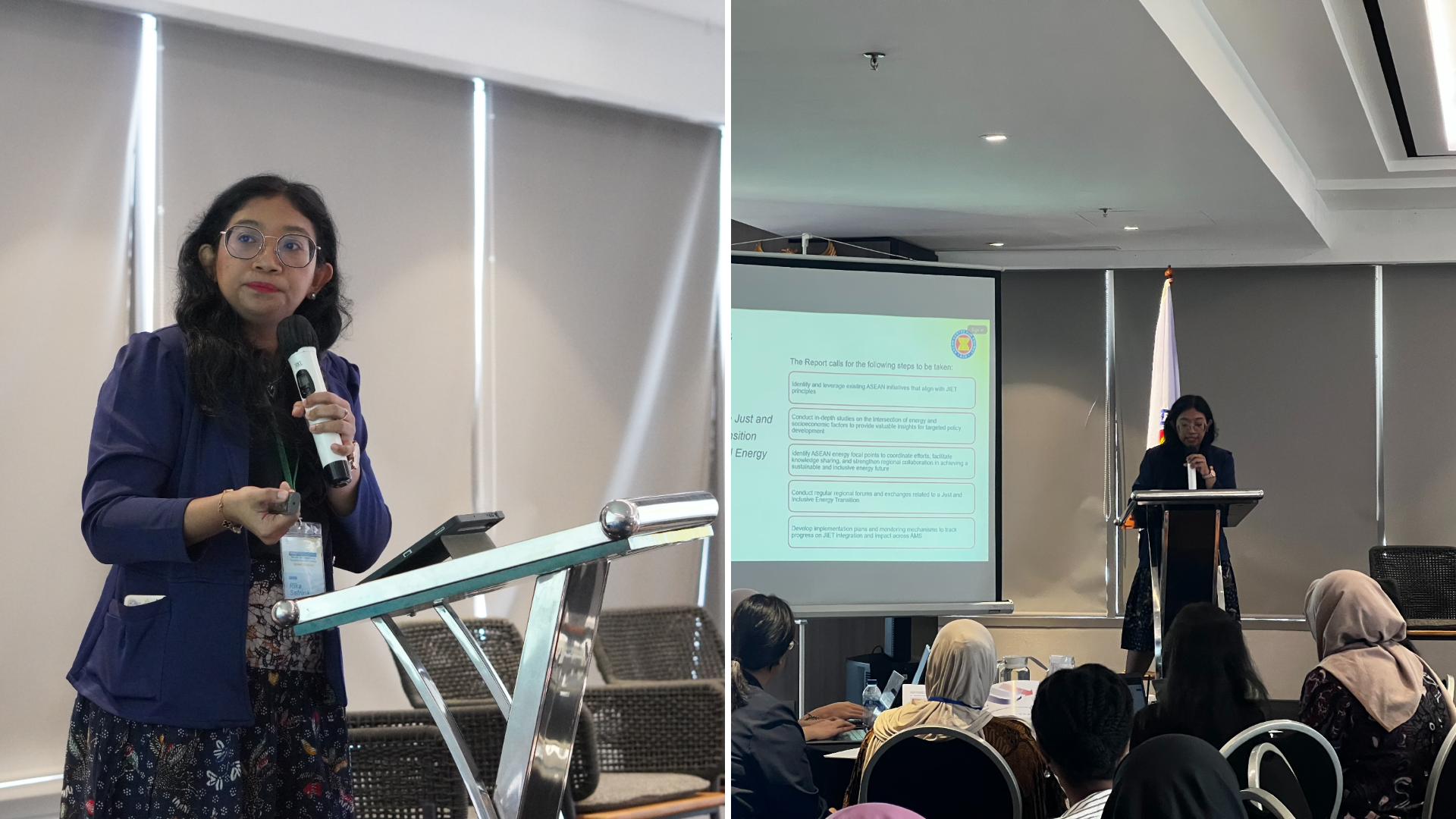
Photo 3. Rika Safrina, Senior Analyst of Energy Modelling and Policy Planning (MPP) Department at ACE, presenting the key highlights of “A Guide for a Just and Inclusive Energy Transition in ASEAN” report
The workshop continued with a presentation by Rika Safrina, Senior Analyst of Energy Modelling and Policy Planning (MPP) Department at ACE, on A Guide for a Just and Inclusive Energy Transition in ASEAN. This report serves as guidance on the implementation and incorporation of just and inclusive principles into energy policymaking, which provides guiding principles, prioritised areas, steps, and a policy toolkit. Highlighting one of the challenges in ASEAN, Rika mentioned that not all ASEAN member states have achieved full electrification or universal access to clean cooking. Therefore, ensuring energy security and affordability remains a critical priority for the region.

Photo 4. Panellists and moderator of the first panel session
Following her presentation, Ms. Rika continued to moderate the first-panel session of “From Policy to Practice: Implementing the Just and Inclusive Energy Transition Initiatives”. This session focused on sharing insights across the region. Suripno, Vice President of Sustainability of PT Pertamina, shared how the company, a fossil fuel-based enterprise in Indonesia, is navigating its transition toward cleaner energy solutions—balancing energy security with community inclusion. Kamia Handayani, Executive Vice President of Energy Transition and Sustainability of PLN, reaffirmed the importance of ensuring affordable electricity and outlined PLN’s strategies for financing energy transition, emphasising a people-centred approach at the core of its implementation.
Bernadette Victorio, Program Lead of Fair Finance Asia, emphasised the need to restructure financial strategies for the energy transition, underscoring the importance of aligning with ESG standards, conducting impact assessments, and ensuring meaningful engagement with community. Kenneth Bernard Hizon, Just Energy Transition Program Lead of Oxfam Philippines, emphasised that beyond financing, it is essential for communities to understand renewable energy to engage in the transition process actively. Suchart Klaikaew, Programme Lead, Innovation Regions for a Just Energy Transition (IKI JET) of GIZ Thailand, shared his insights from the Lampang region case study, where the coal mine closures have impacted local communities and their economies, highlighting the urgent need for Just Transition Plan.
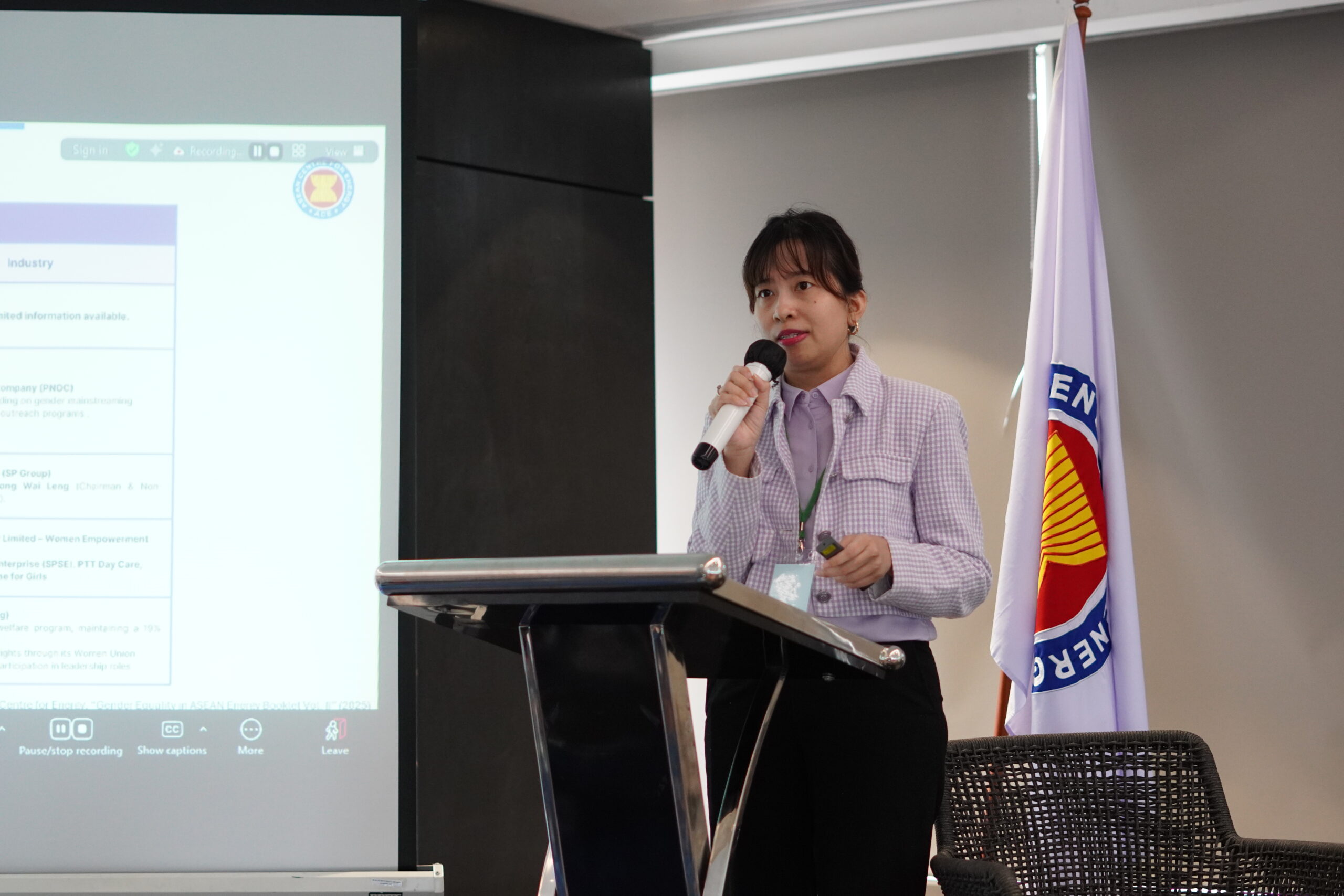
Photo 5. Aldilla Noor Rakhiemah, Project Manager of the ASEAN Climate Change and Energy Project (ACCEPT) Phase II of ACE, presenting on the GEDSI Progress in the ASEAN Energy Transition
The afternoon session started with a presentation from Aldilla Noor Rakhiemah, Project Manager of the ASEAN Climate Change and Energy Project Phase (ACCEPT) II of ACE, titled “Gender Equality, Disability, and Social Inclusion (GEDSI) Progress in the ASEAN Energy Transition”. She shared the progress of each ASEAN member state in Gender Equality and Social Inclusion (GESI) and the challenges the region faced. Her presentation closely reflected the Gender Equality in ASEAN Energy Booklet Vol. 2, highlighting the publication’s comprehensive coverage and continued relevance.
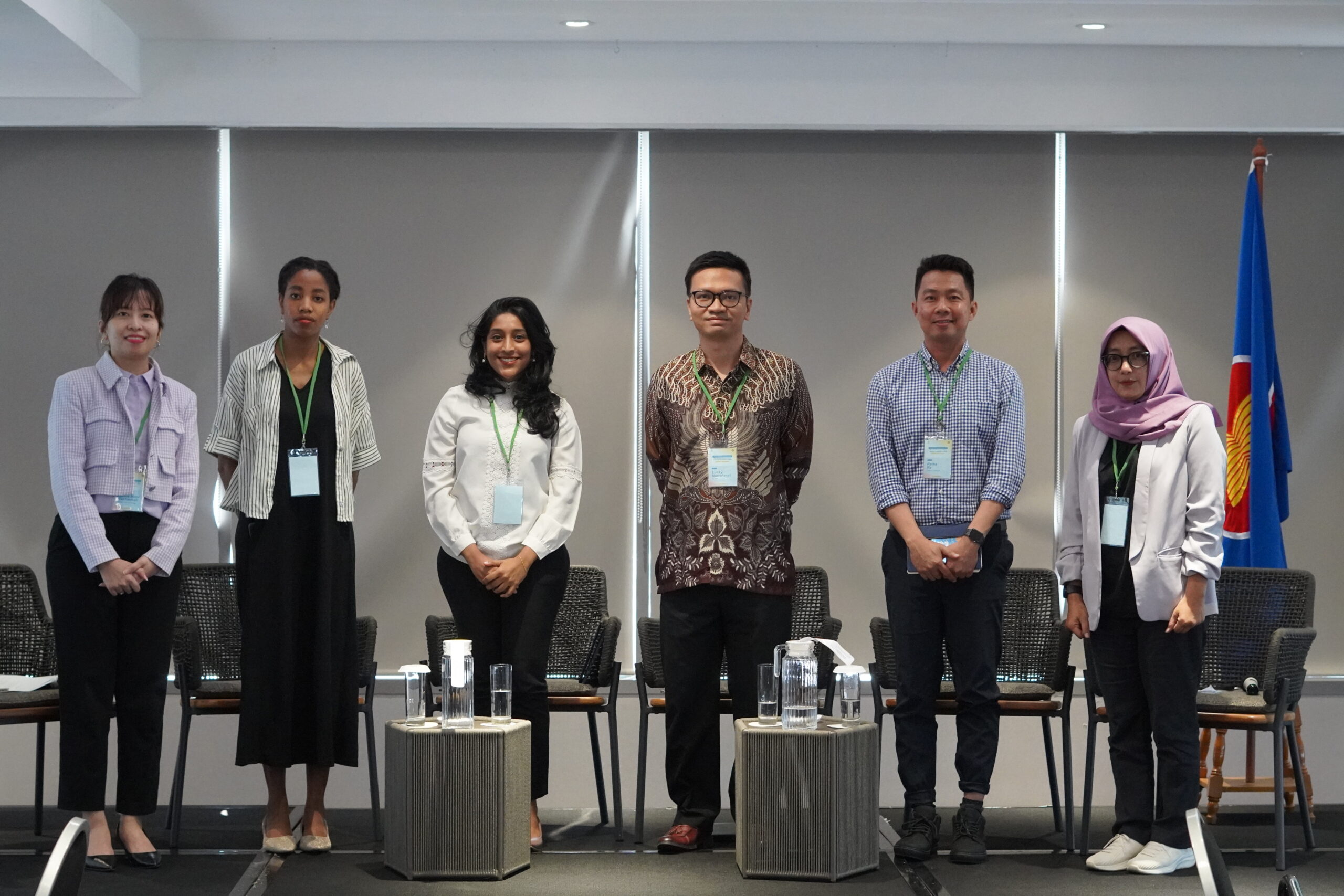
Photo 6. Panellists and moderator of the second panel session
Drawing from the previous presentation, the second-panel session focused on sharing evidence-based insights from the grassroots community on GESI in the context of energy transition. This session was led by Dia Mawesti, Project Manager at Oxfam Indonesia, and featured panellists from civil society organisations as well as regional and international institution. From a global perspective, Alexandra Mutungi, Gender and Climate Change Expert, at the United Nations Environment Programme (UNEP), also shared her experience in the EmPower Project that aims to help vulnerable groups in the Asia Pacific who are impacted by climate change disasters and advocating for a more resilient energy transition. Aldilla also highlighted the importance of integrating GEDSI into regional energy policymaking, as well as the progress made in the ASEAN energy sector on this front.
Looking at the national level, Lucky Nurrahmat, Country Lead for Indonesia at the Global Energy Alliance for People and Planet, shared how he partnered with PLN to prepare the impacted communities for the process of the coal power plant phase-out project in Cirebon. Ratha Ra, Program Coordinator at Oxfam Cambodia, shared his experience in helping vulnerable groups, especially the rural communities impacted by the construction of renewable energy, to bring their voice to the national level. The discussion continued with Nachatira Thuraichamy, Senior Project Coordinator, I-JET CANSEA, explaining how the traditional role of women deprives them of taking the opportunity to join higher management levels and make decisions on a policy that will affect women.
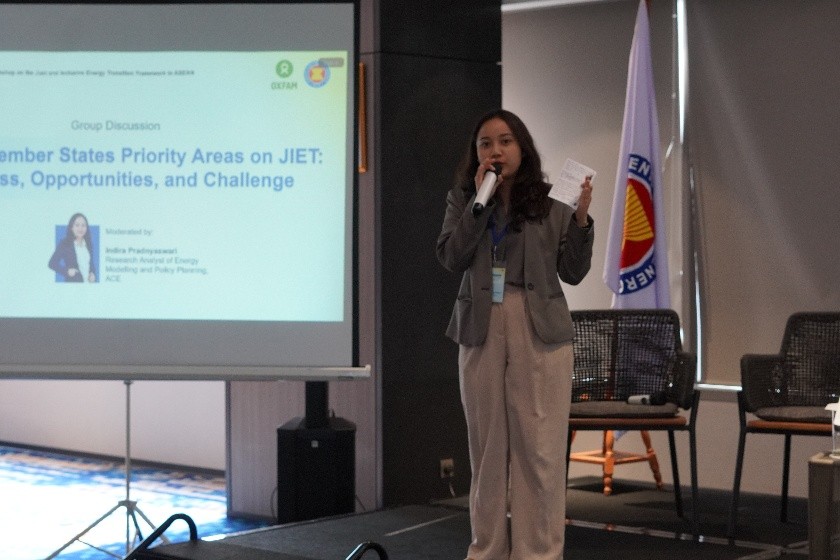
Photo 7. Indira Pradnyaswari, Research Analyst of MPP Department at ACE, leading the group discussion
The consultation workshop continued with a group discussion moderated by Indira Pradnyaswari, Research Analyst of MPP Department at ACE, to understand ASEAN Member States Priority Areas on Just and Inclusive Energy Transition. The discussion was opened by the presentation by Wachira Jitpranee from the Ministry of Energy of Thailand, who explained the key insight of Thailand’s national commitment to achieve a just and inclusive energy transition.
The discussion, then, invited participants across the region to share their insights on the Just and Inclusive Energy Transition Framework, providing valuable input on several key areas, including diverse national commitments needed to achieve a just and inclusive energy transition. Topics covered included energy access, education and capacity building, energy employment, gender and social inclusion, and inclusive governance. The outcomes of this discussion will provide crucial input for upgrading the JIET guidance.
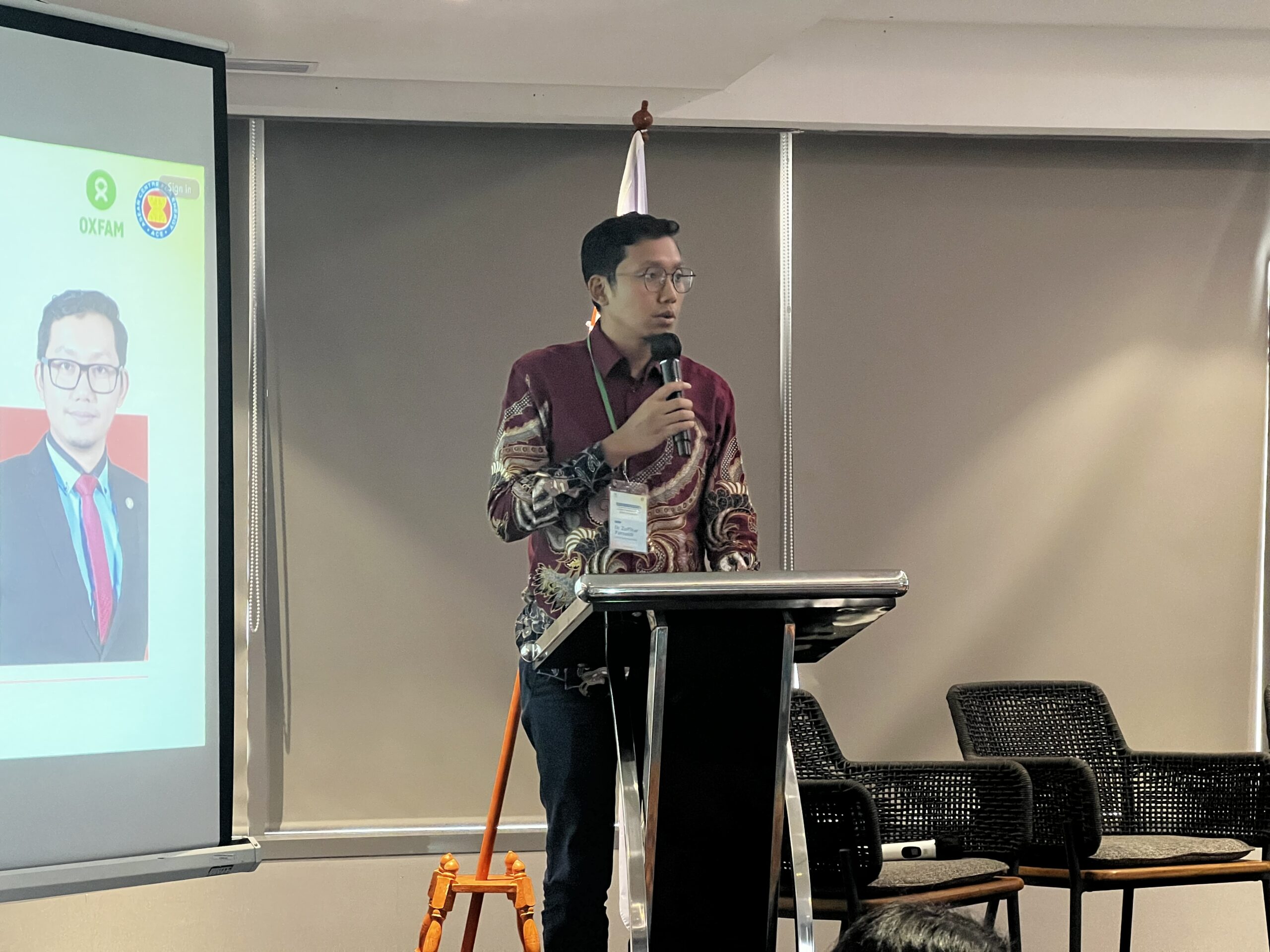
Photo 8. Dr Zulfikar Yurnaidi, Manager of Energy Modelling and Policy Planning of ACE, giving his closing remarks
The workshop concluded with a closing remark from Dr Zulfikar Yurnaidi, Manager of MPP Department at ACE. He emphasised that the region’s understanding of the energy transition should no longer be limited to transitioning from fossil fuel to low-carbon base energy sources but should expand to include how it will affect other sectors such as social, economic, environmental, and many more.
The workshop ended with a renewed commitment to ensure a just and inclusive energy transition through regional cooperation and national commitments. As ASEAN moves forward in the energy transition, the collaborative spirit and shared vision demonstrated during this workshop play a crucial role in ensuring that the transition to clean energy benefits all and leaves no one behind.
Read more about A Guide to a Just and Inclusive Energy Transition here.
